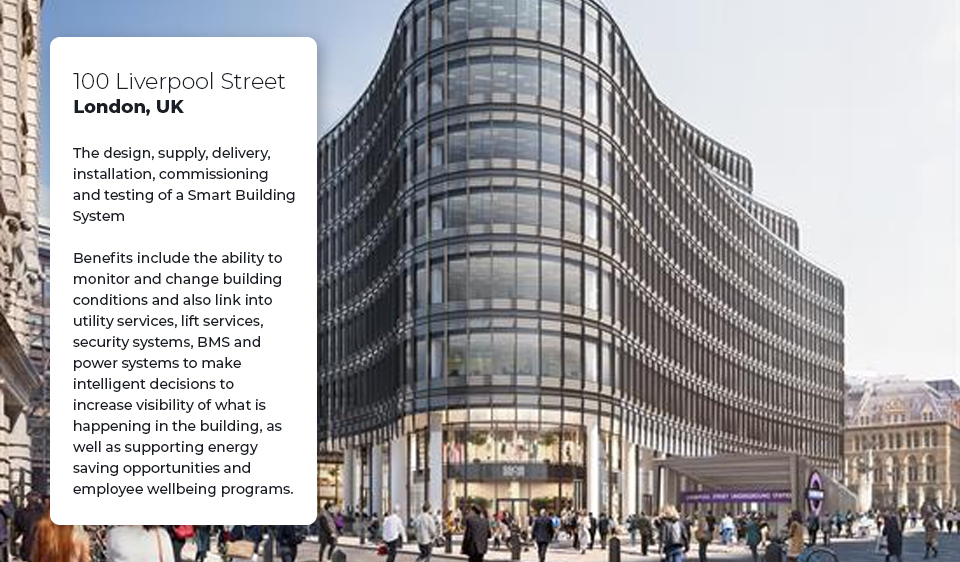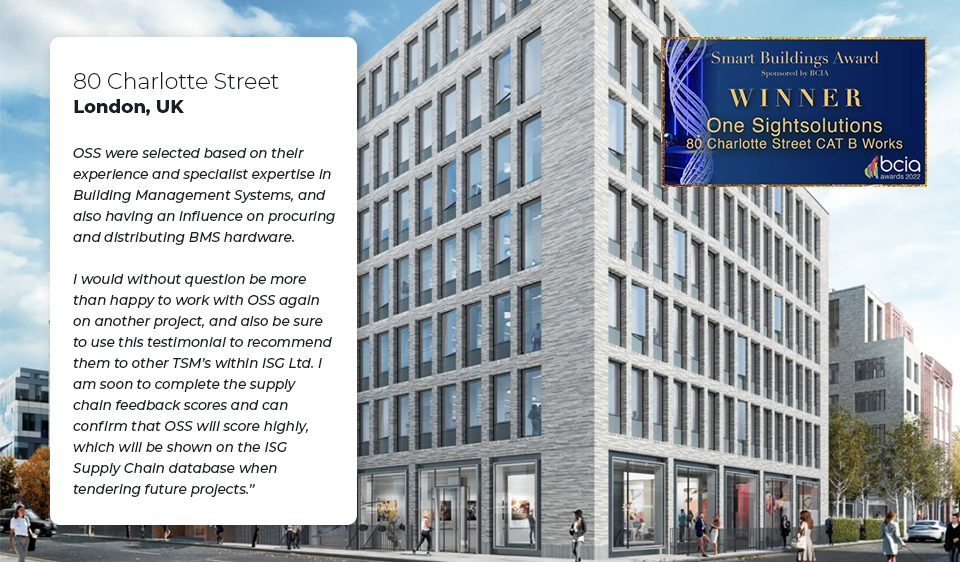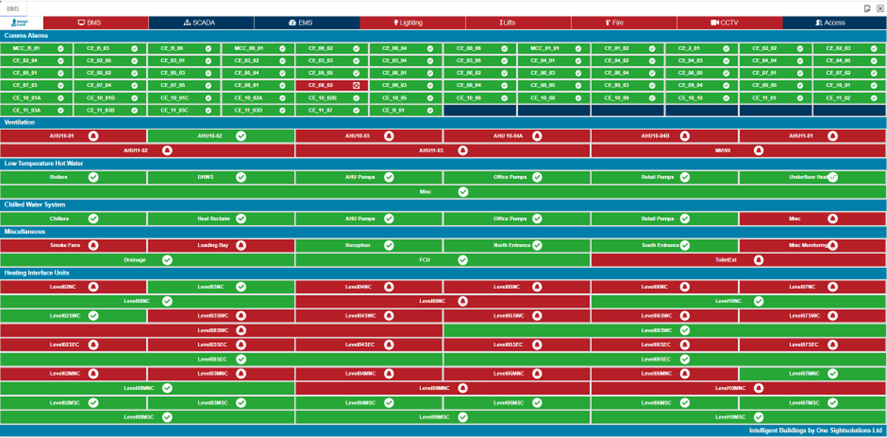



Trusted partner delivering award-winning Smart Buildings to clients across the UK






How Facilities Management benefits from Smart Building technology
and how One Sightsolutions can help meet targets, make savings and enhance working conditions
In the evolving landscape of property and real estate, Smart Buildings offer a proactive approach when it comes to performance, maintanence and experience. Over the next 5 years, the number of Smart Buildings is projected to increase by over 150% alone, and this shift is not something you want to be left behind of.
What can a Smart Building offer Facilities Managers?
Smart technology makes it possible to look closely at a buildings performance, and help Facility Managers identlify the information they need to drive positive change.
Facilities Managers often are forced to operate reactivley, dealing with issues as and when they arise, leading to extensive time-consuming maintenence and dealing with compaints.
Smart Building technology offers a real, automated approach in turning Facility Management into a proactive operation.
This solution provides an all-ecompassing view of real-time performance of all systems within a building or site, fed by BMS hardware, IoT sensors and gateways, giving you a centralised control platform to make informed decisions on key targets and issues.
A prime example being people counting and occupancy sensors allowing Facility Managers to indentify key usage trends within designated spaces. In turn, there is the potential to automatically turn lights on/off depending on room occupancy, and scheduling HVAC systems when during high occupancy hours, all in turn reducing energy consumption and operational costs.
Embracing this advanced technology now, enables building owners to be best-positioned to take advantage of these benefits and retain competitive advantage in the property market, as well as meeting valuable Net Zero and ESG targets in the UK.
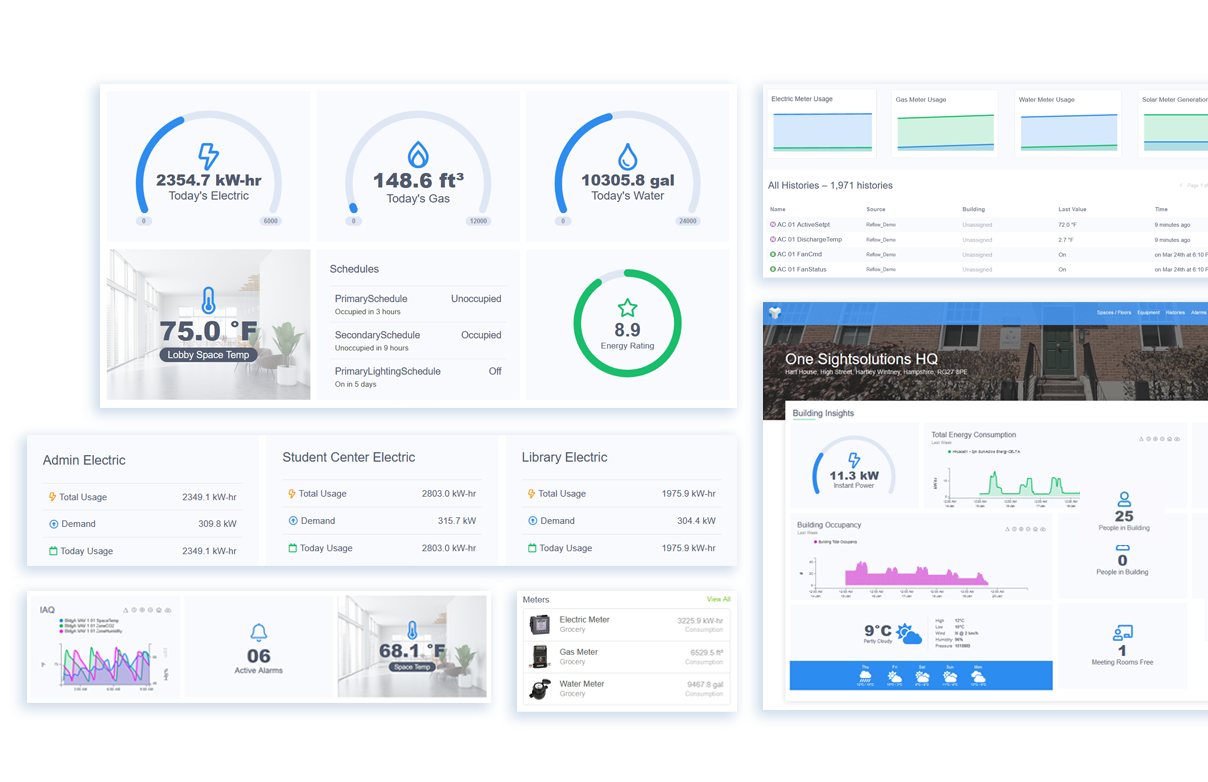
Predictive Maintainence & Planning in Facilities Management
A holistic view of your building data and the use of predicitive analytics around resource consumption to ensure optimal efficiency levels, means you can identify and set concrete objectives that result in significant advantages.
Reduction in overall maintenance costs: Proactive outlook of indentifying potential issues before they happen can majorly reduce down time and resources spent on maintenance
Long-lasting equipment: Data-driven insights on assets and usage, can help prolong the durability of building systems, saving costs and the environment
Improving occupant comfort: An indoor environment automatically maintained an optimal levels can improve productivity by up to 23% and enhance occupant satisfaction, resulting in the potential for higher revenue and public credibility
Standards compliance: Constant monitoring and control of lighting, HVAC, energy-use, temperature and occupancy within a space, can significantly reduce overall energy consumption, aligning with the UK’s Net Zero and ESG targets by 2050.
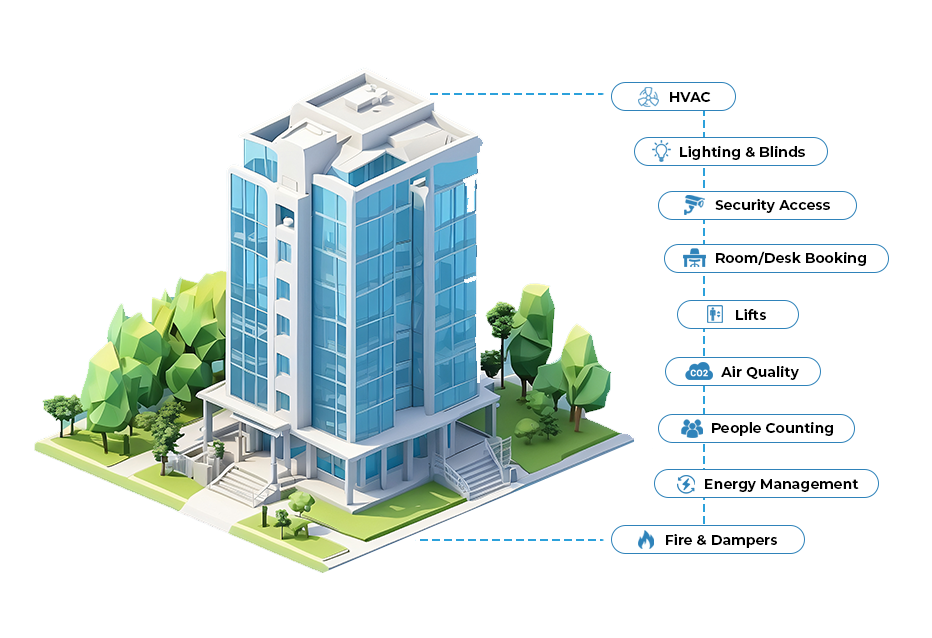
Why you should invest in Smart Building technology
As of 2023, nearly 90% of non-domestic buildings in the UK do not have an optimised BMS (Building Management System), with the BMS responsible for between 60-80% of total energy consumption in a building. By Smart Enabling and optimising these systems, building owners can see up to a 40% reduction in energy usage. Conventional buildings face a range of problems as a result of limitations from traditional building designs and construction methodologies, however retrofitting with Smart Technology and IoT connectivity provides a future-proof solution that overcomes these exisiting pain points:
Reduced Energy Efficiency
Designed without a focus on energy and changes in operations over time, resulting in higher energy costs.
Lack of Building Data Insight
Conventional buildings have not been designed to collect data on performance and occupant behaviour, resulting in building managers being unable to make informed decisions to improve efficiency.
Limited Occupant Comfort
Lack of data to provide optimum working conditions, including lighting, temperature and indoor air quality. Resulting in reduced productivity and overall wellbeing.
No Building Automation System
Absense of automated systems to monitor and control building systems and processes.
Not enabled for Future Technology
Contruction and IT systems designed with limited flexibitlity to be adaptable for future changes and meeting regulations.
Smart Buildings Connect Systems & Devices to enable optimisation
Our solutions are based upon the Tridium Niagara Framework, which is a comprehensive software infrastructure that acts as a central console for connecting real-time operational data to the people and systems in smart buildings, data centers, industrial processes and smart cities. This open framework collects data from all of your separate BMS systems and devices, and normalises it into actionable controllable points in a single platform.
Benefits of our systems in Smart Buildings
Energy Monitoring Data Insights
Real-time energy monitoring allowing you to detail where major energy consumption is being used
Reduce Energy Consumption & Costs
Reducing costs by optimising your energy management, across lighting, HVAC and power usage
Safer Sustainable Spaces
Leveraging IoT to monitor traffic flows and indoor AQ to reduce abscences, promote healthier spaces and attract tenants
Increase Productivity & Occupant Wellbeing
Optimise occupant & employee environmental conditions such as light, temp and CO2 to work more efficiently
Improved Maintenance Procedures
Increasing the use of data to perform predictive and remote maintenance across sites, reducing labour costs and down time
Open to New Technology
Having an open platform to adapt to future ESG targets, operational needs and new IoT systems seamlessly
Topology: Connect, Control, Capitalise

Our Integrations Solve Problems for Clients over a Diverse Range of Verticals
Building Owners | End Users | Facility/Building Managers | Consultants | Contractors | System Integrators






Client Success Stories
